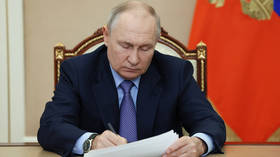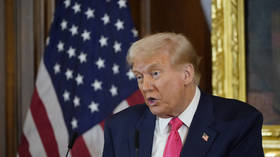Life after EU: Britain signs post-Brexit free trade deal with South Korea
London and Seoul have inked a “continuity” trade agreement to replace a similar deal between South Korea and the EU after the UK leaves the bloc. The document is aimed at retaining trade benefits the countries currently enjoy.
The pact was signed by South Korean Trade Minister Yoo Myung-hee and British Secretary of State for International Trade Elizabeth Truss in London on Thursday. Yoo said that Seoul will ensure that “local companies maintain their trade and investment free from the uncertainties, including Brexit,” according to Yonhap.
The document is designed to protect annual trade flows between the two countries, with total trade worth £14.6 billion (US$17.7 billion) in 2018.
Also on rt.com UK faces highest risk of recession since 2007 and is hardly ready for itIf ratified by parliaments of both states, the new bilateral free trade agreement is set to take effect after the UK’s withdrawal from the EU, which is scheduled for the end of October with or without a deal. Until the Brexit deadline, London is seeking to replicate EU-trade agreements with countries to avoid tariffs on exports and imports. London has so far secured several similar agreements accounting for £89 billion of trade, an increase of more than £50 billion since March 2019.
Also on rt.com China expanding free-trade zones as part of opening up its economy“My priority is to make sure that British businesses are fully prepared for Brexit and ready to trade on Thursday 31 October. That’s why I’m delighted to sign this trade deal today with one of the biggest markets covered by existing EU trade agreements,” Truss stated.
The British government earlier said the agreement with Seoul replicates “as far as possible” the effects of the EU-Korea trade deal. As of 2017, there were 6,900 British businesses exporting goods to Korea, worth around £5.8 billion. Auto supplies, including items for British classic luxury cars, account for a large part of British exports to South Korea, with year-on-year shipments having surged by 30 percent to £943 million in 2018.
For more stories on economy & finance visit RT's business section














